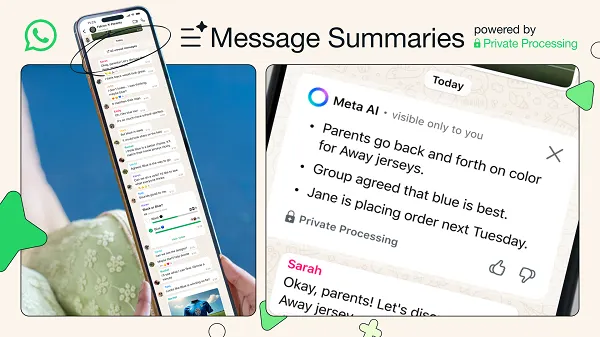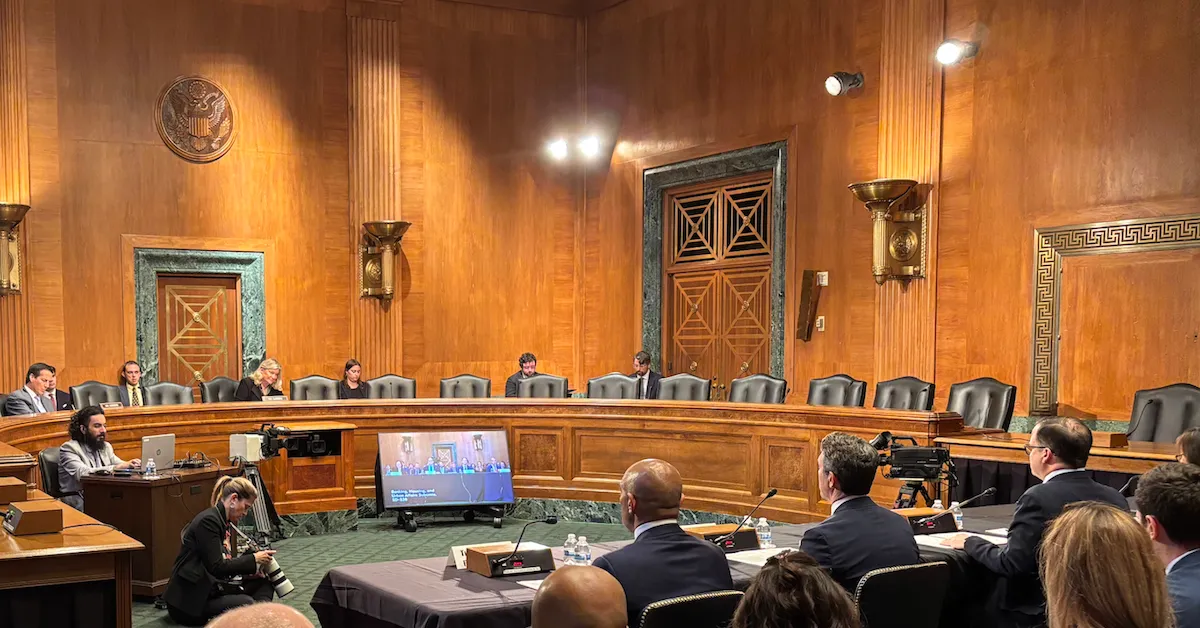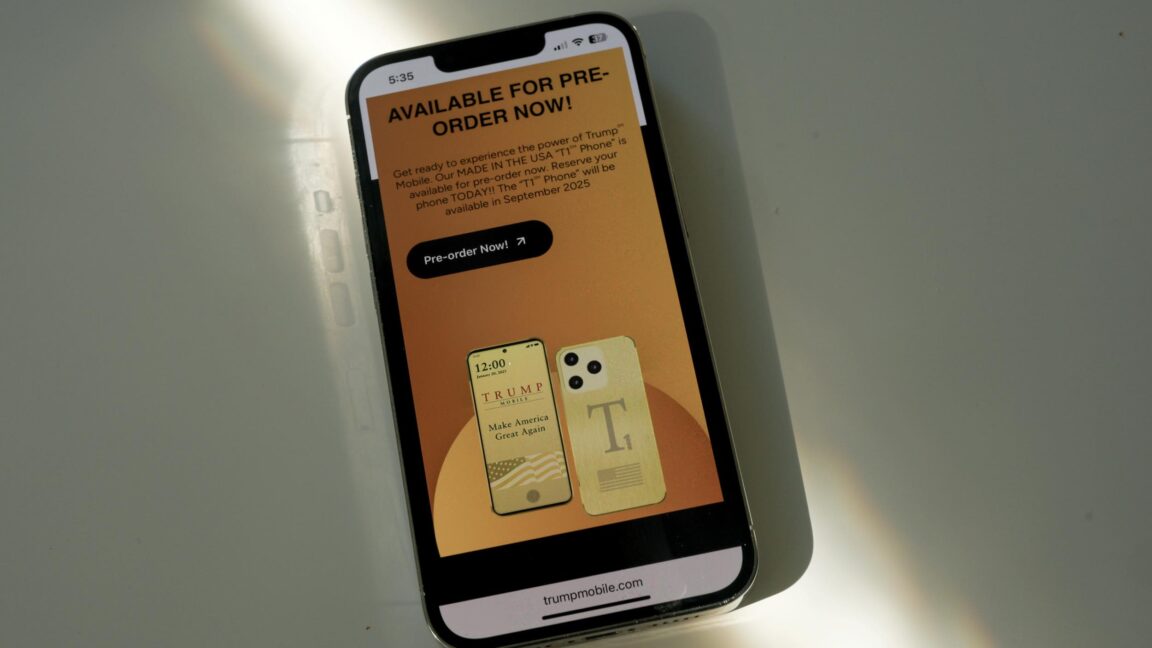How leaders can ask questions without undermining their authority
There’s a myth that to be a good leader, you need to be the smartest person in the room. As a result, many leaders struggle to admit that they don’t have all the answers. They’re reluctant to ask for help and end up struggling in silence. This reluctance is normal—it’s a fear-based response to not wanting to look incompetent to your team or superiors. But there is a way you can ask for help that strengthens your position as a leader, rather than undermines it. What you gain when you ask for help Reluctance to ask for help isn’t just pride: it’s often about perception. And this concern isn’t entirely unfounded. One study found that male leaders risked being perceived as less competent when they asked for a lot of help. In contrast, their female counterparts in the same study didn’t experience a significant drop in perceived competence when seeking help. However, researchers cautioned that it isn’t actually whether or not you ask for help, but how you ask. The same study noted that asking for help is critical for leaders to learn and improve. And the benefits of asking for help far outweigh the perceived risks. Harvard Business School researchers Alison Wood Brooks and Francesca Gino found that our mindset around seeking guidance is misguided. We might think that others will see us as less capable, but the opposite is true. In their study, Brooks and Gino found that when we ask others for advice, they view us as more competent. It signals that we value their expertise and don’t overestimate ourselves, which is a sign of self-awareness. Moving beyond perceptions, asking for help is also likely to yield better performance results. By utilizing the knowledge, expertise, and insight of your team, you expand your collective problem-solving capacity. Leveraging people’s strengths to solve complex problems is the hallmark of a competent leader. Learning to practice strategic vulnerability There’s a term for what effective leaders do when they admit they don’t know everything: strategic vulnerability. Rather than appearing inept or oversharing indiscriminately, asking questions positions you to lead through vulnerability. That’s because you demonstrate that it has a purpose, which is to empower others, utilize their expertise, build trust, and spark collective solutions. Harvard Professor Amy Edmondson, a leading expert on psychological safety, says the simple admission of “I might miss something here, I need to hear from you” lays a foundation of a psychologically safe environment. By modeling fallibility—not ineptitude, you create an environment where people feel safe to speak up, ask questions, and share their opinions and ideas. These are all the fundamental elements of a high-performing team. As Edmondson highlights in her research, an environment with high levels of psychological safety is one with fewer mistakes, less duplication, and less fear and anxiety. When you ask questions as a leader, you appear accessible and approachable. This creates the space for others to do the same, fast-tracking the discovery and recovery from mistakes or potentially more fatal decisions. As a leader, you set the tone: what you do becomes the behaviors that you accept, which your team then reinforces. Asking questions models curiosity and humility. When people feel like you value their input, they can see how their contributions matter to the bigger picture. This builds trust, loyalty, and a sense of meaningfulness into the everyday functions of work. Strategic vulnerability—when you do it right—flips the script from looking incompetent to empowering your team. It also beats pretending you have all the answers. How to ask for help without losing authority Asking for help is crucial to your leadership success. But how can you do so without looking incompetent? The key is to be intentional about when and how you ask. Here are some practical ways to ask for help that maintain (and even enhance) your credibility: Frame the problem as a shared challenge Without shifting accountability, frame the goal or problem as a collective one, rather than a personal failing. This enlists the help of your team’s collective brainpower, and doesn’t look like you’re simply palming the problem off. Rather than, “I have no idea how we’re going to launch this new product successfully,” say “We’re entering new territory here—let’s put our heads together to brainstorm how we can do this successfully.“ Lean on the expertise of others Highlighting the knowledge and expertise of the people around you shows respect, and lets them know their contributions matter. Simple framing it as “I know you’re experienced in X—can you help me understand this better?” goes a long way in showing others you value them and their expertise. Be specific and solution-focused Vague pleas can sound like panic, so be clear about what kind of help you need. Reframe “I’m lost—I need help,” to “I’m not fully convinced our project

There’s a myth that to be a good leader, you need to be the smartest person in the room. As a result, many leaders struggle to admit that they don’t have all the answers. They’re reluctant to ask for help and end up struggling in silence.
This reluctance is normal—it’s a fear-based response to not wanting to look incompetent to your team or superiors. But there is a way you can ask for help that strengthens your position as a leader, rather than undermines it.
What you gain when you ask for help
Reluctance to ask for help isn’t just pride: it’s often about perception. And this concern isn’t entirely unfounded. One study found that male leaders risked being perceived as less competent when they asked for a lot of help. In contrast, their female counterparts in the same study didn’t experience a significant drop in perceived competence when seeking help.
However, researchers cautioned that it isn’t actually whether or not you ask for help, but how you ask. The same study noted that asking for help is critical for leaders to learn and improve. And the benefits of asking for help far outweigh the perceived risks. Harvard Business School researchers Alison Wood Brooks and Francesca Gino found that our mindset around seeking guidance is misguided. We might think that others will see us as less capable, but the opposite is true. In their study, Brooks and Gino found that when we ask others for advice, they view us as more competent. It signals that we value their expertise and don’t overestimate ourselves, which is a sign of self-awareness.
Moving beyond perceptions, asking for help is also likely to yield better performance results. By utilizing the knowledge, expertise, and insight of your team, you expand your collective problem-solving capacity. Leveraging people’s strengths to solve complex problems is the hallmark of a competent leader.
Learning to practice strategic vulnerability
There’s a term for what effective leaders do when they admit they don’t know everything: strategic vulnerability. Rather than appearing inept or oversharing indiscriminately, asking questions positions you to lead through vulnerability. That’s because you demonstrate that it has a purpose, which is to empower others, utilize their expertise, build trust, and spark collective solutions.
Harvard Professor Amy Edmondson, a leading expert on psychological safety, says the simple admission of “I might miss something here, I need to hear from you” lays a foundation of a psychologically safe environment. By modeling fallibility—not ineptitude, you create an environment where people feel safe to speak up, ask questions, and share their opinions and ideas. These are all the fundamental elements of a high-performing team.
As Edmondson highlights in her research, an environment with high levels of psychological safety is one with fewer mistakes, less duplication, and less fear and anxiety. When you ask questions as a leader, you appear accessible and approachable. This creates the space for others to do the same, fast-tracking the discovery and recovery from mistakes or potentially more fatal decisions.
As a leader, you set the tone: what you do becomes the behaviors that you accept, which your team then reinforces. Asking questions models curiosity and humility. When people feel like you value their input, they can see how their contributions matter to the bigger picture. This builds trust, loyalty, and a sense of meaningfulness into the everyday functions of work. Strategic vulnerability—when you do it right—flips the script from looking incompetent to empowering your team. It also beats pretending you have all the answers.
How to ask for help without losing authority
Asking for help is crucial to your leadership success. But how can you do so without looking incompetent? The key is to be intentional about when and how you ask. Here are some practical ways to ask for help that maintain (and even enhance) your credibility:
Frame the problem as a shared challenge
Without shifting accountability, frame the goal or problem as a collective one, rather than a personal failing. This enlists the help of your team’s collective brainpower, and doesn’t look like you’re simply palming the problem off. Rather than, “I have no idea how we’re going to launch this new product successfully,” say “We’re entering new territory here—let’s put our heads together to brainstorm how we can do this successfully.“
Lean on the expertise of others
Highlighting the knowledge and expertise of the people around you shows respect, and lets them know their contributions matter. Simple framing it as “I know you’re experienced in X—can you help me understand this better?” goes a long way in showing others you value them and their expertise.
Be specific and solution-focused
Vague pleas can sound like panic, so be clear about what kind of help you need. Reframe “I’m lost—I need help,” to “I’m not fully convinced our project X plan covers everything. Could you review it and see if we’re missing anything?” This makes the ask direct and specific, clearly showing the intended outcome. It shows you’ve got a handle on the situation, but see opportunities to close the gaps and make improvements.
Use confident humility in your wording
Phrases like “I’d love your take on this” or “Let’s hash this out together” convey optimism and authority, alongside openness. You’re inviting others to contribute, creating a collective opportunity to problem-solve while demonstrating you’re confident enough to be humble. The goal is to affirm the other person’s ability while acknowledging your limitations (without undermining yourself).
Connect requests clearly to situations
Sometimes you can soften the ask by pointing to an external issue rather than your personal skills. This isn’t about making excuses but clarifying that anyone in your situation would need input. For example, “The client has requested a change to the usual scope, it’s not something we usually do—can I get your insight to find a solution?” This demonstrates the complexity of the challenge, not your incapacity as a leader—shifting focus onto what you need to solve together, and how that person’s expertise is beneficial.
Ultimately, leadership isn’t about knowing everything. It’s about how and when to leverage the strengths of those around you to create outcomes that are greater than the sum of their parts.
When you combine clear intention with a thoughtful ask, you open the conversation to solve complex problems you alone couldn’t accomplish. And you create a culture where it’s safe to speak up, ask questions, and ask for help.
The only dumb question is the one you didn’t (skillfully) ask.




![Snapchat Shares Trend Insights for Marketers To Tap Into This Summer [Infographic]](https://imgproxy.divecdn.com/7LB56F586EcY82vl5r47Ba6f7RdKcHkNelnSgSe8Umc/g:ce/rs:fit:770:435/Z3M6Ly9kaXZlc2l0ZS1zdG9yYWdlL2RpdmVpbWFnZS9zbmFwX2tzYTIucG5n.webp)







![What Is a Markup Language? [+ 7 Examples]](https://static.semrush.com/blog/uploads/media/82/c8/82c85ebca40c95d539cf4b766c9b98f8/markup-language-sm.png)

























































































































































































